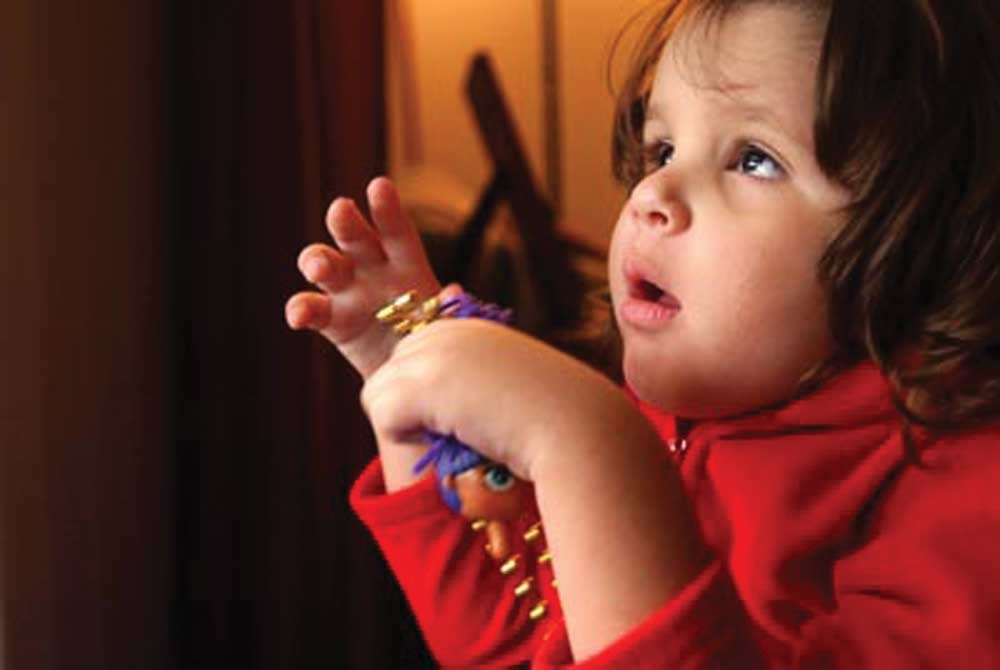According to the October 2015 edition of Pediatrics, the current statistic for children with autism is 1 in 91 children. For my family, this statistic is all too real. Being the parent of a child with autism presents its own set of difficult challenges. There is a certain sense of powerlessness that accompanies this responsibility. While state and local governments are figuring out how to accommodate and service the growing number of children with autism, we are living with the day to day challenges of raising and educating a child with moderate autism and profound hearing loss.
In the Beginning
After my parents moved to Lake County Florida in 1998, I was faced with the challenge of raising my hearing-impaired child on my own. After learning that Taylor had severe bilateral hearing loss, I was disappointed, but surprisingly optimistic. It was important for me to have a strong background in education in order to serve as the best advocate for Taylor. Though I received my bachelor’s degree from the University of Illinois at Chicago in 2012, over the past eight years I have acquired two additional graduate degrees.
After we moved to Brooklyn, New York for my teaching position in 2013, Taylor was diagnosed with moderate autism. Because of her limited language ability and other various developmental delays, it was difficult to figure out how to educate her. Prior to our move to New York, Taylor was implanted with the cochlear implant, a device that provides hearing to one ear through electrodes that are implanted into the cochlea. Because of the complexity of the device and the new influx of sounds, the device provided an additional challenge to an already multifaceted diagnosis.

Though there were specialized schools for autism and deafness, there was not a special school that could service both disabilities. When planning her program, we attempted to separate her goals into short term ones, all while maintaining realistic expectations. It was our hearts’ desire for Taylor to walk, talk and hear, but realistically we settled on more assessable short term goals, such as reciprocating the signs we presented and toileting independently.
Beating the Odds
Because of the dedication of countless teachers and therapists, Taylor has been able to beat the odds despite her dual diagnosis. She is an avid swimmer and participates in Maine Handicapped Skiing during the winters. The Sunday River ski resort houses this special program that enables children and adults with special needs to ski while assisted by trained volunteers. While vacationing in Florida this summer, Taylor has also enjoyed morning swims in a local pool.
Spending holidays and vacations in Florida with my mom has been a rewarding source of respite. There are numerous obstacles that parents face when raising a child with autism but when given a proper diet (gluten free), and a standard routine, life for a child with autism can be just as satisfying as that of a typical child. There are two key ideas to keep in mind for long-term success regarding children with autism. First, educators and parents should work closely to assure the specialized educational plan often known as an Individualized Education Plan (IEP) is put in place.
The IEP is generated once per academic year and allows parents and educators to create specialized goals that are tailored to the needs of each child. Secondly, it is important to have realistic and measureable standards that encompass the special talents of the child. Therefore, children with autism are able to enjoy reaching those standards while building on their unique abilities.
The Marching Band
Being the parent of a child with autism is like being the leader of a marching band. The band members are made up of therapists, teachers and doctors. Your job is to lead the band through a maze of harmonious renditions while staying motivated and energized. In doing so, you pray that at the end of the performance you are still standing and you must remember to enjoy yourself along the way. Though it is exhausting and emotionally demanding, this event must be orchestrated just right, so the band members march forward despite difficult circumstances.
As the leader, it is important to keep in mind the main goal of a band leader: arrange a crisp program that not only sounds flawless but appears effortless. This must take place all while forging straight ahead, overlooking minor mistakes and errors. Even though your back is turned the entire time, you know what each participant should be doing and what role they play in the success of this occasion. The routine must be tailored specifically so your child can succeed.
This life-changing performance involves strict planning, practice and patience. Even though you may stumble along the way, when you are the leader, you take full responsibility for the failures and the successes. Before the finale, you reflect on the highs and lows of your performance, and you are grateful for those who have participated to make it such a worthwhile event. As the parent of a special needs child you hope that one day your child is able to dance to the beat of their own drum and benefit from the life-changing contributions that were made on their behalf. Finally, you take a bow.